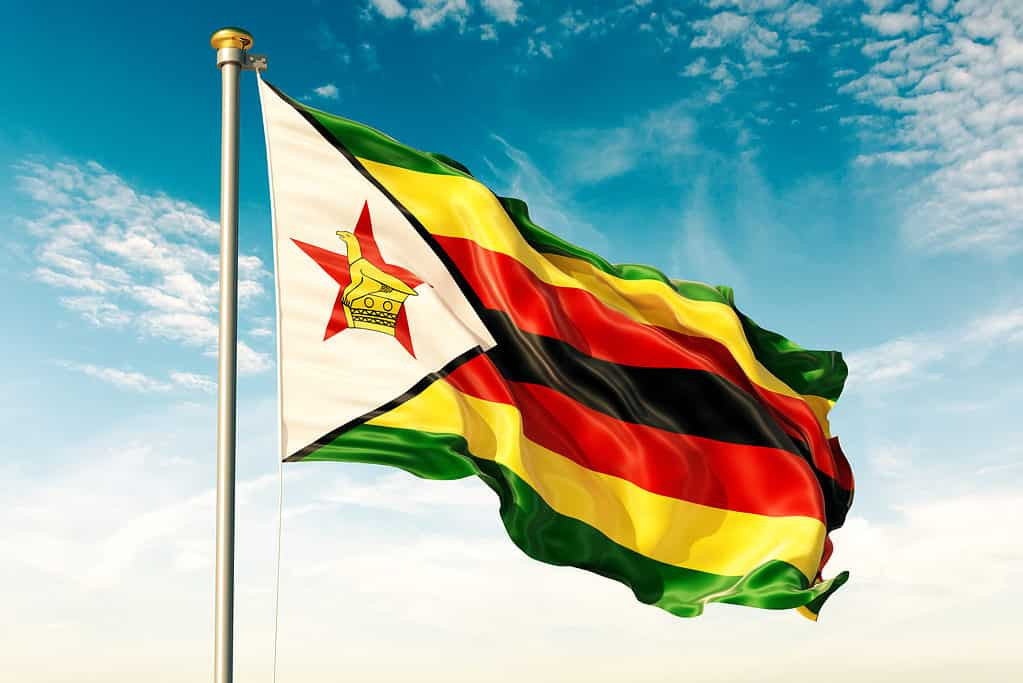
BY MTHANDAZO NYONI
THE outbreak of the novel coronavirus, which has so far killed over 230 000 people and crippled economies around the world, is a huge opportunity for Zimbabwe to reindustrialise, economic analysts have said.
Declared a pandemic by the World Health Organisation in March this year, Covid-19, a respiratory disease caused by the coronavirus, has decimated Zimbabwe’s fragile economy, with some of the country’s major trading partners like China, cancelling orders due to port closures, hurting exports in the process.
Economic analysts, who spoke to Standardbusiness, said Zimbabwe should start taking import substitution policies seriously and reindustrialise, lest the whole economy crumbles.
The southern African country has been, for a long time, talking about an import substitution policy, but with little support from government in terms of political will and financial support.
“We need to rethink our strategy as a country. We need to reindustrialise and policy makers should take this more seriously.
“I see this coronavirus as a significant force for the country to reindustrialise.
“It can be seen as levelling the ground,” Persistence Gwanyanya, an economist, said.
- Chamisa under fire over US$120K donation
- Mavhunga puts DeMbare into Chibuku quarterfinals
- Pension funds bet on Cabora Bassa oilfields
- Councils defy govt fire tender directive
Keep Reading
“It’s an opportunity to catch up with the rest of the world.
“We now need to take advantage of that opportunity to grow our economy.”
Covid-19, according to ZimTrade — the country’s export promotion body — is expected to impact China’s global trade for several months as it recorded the first case of the virus.
China is one of Zimbabwe’s top trading partners, with Harare sending exports worth US$974 million in 2019 against imports of US$368 million, according to Trade Map.
Chinese companies are cancelling import orders due to port closures and Zimbabwe’s exports to the Asian country would be affected, ZimTrade said.
“With China having shut down its manufacturing centres and closed its ports, there will be a resultant decrease in demand for the Zimbabwean products,” ZimTrade added.
“At the same time, closed borders in China means Zimbabwean manufacturers that rely on raw materials and other consumables from China will be affected and the spiral effect of reduced manufacturing in China will have a toll on Zimbabwean industries.”
The major products that Zimbabwe imports from China include machinery, mechanical appliances, boilers, electrical machinery, equipment, vehicles, chemical products, rubber, and plastics.
Zimbabwe mainly imports raw materials and machinery for production purposes, which will then be used to manufacture different products some of which are exported.
“Going forward, it is important for local companies to start considering locally produced raw materials that can support businesses,” ZimTrade said.
“This can be easily achieved if stronger linkages are created between suppliers and buyers so that they can strike a balance between supplying the quality products and right prices.
“This import substitution will allow the country to create employment and at the same time preserve the scarce foreign currency.”
Another economic analyst, Believer Mhlanga said it was high time the government analysed Zimbabwe’s imports and strategise on substitution.
“I understand we have been importing things that we can manufacture ourselves or raw materials that we have or can produce on our own,” Mhlanga said.
“Instead of holding hands and counting loses on imports, we should make use of this opportunity to manufacture our own products using our own resources.
“We should only import raw materials that are not locally available-this should be a turning point for Zimbabwe.
“We have seen countries like South Africa, Ghana and other developed countries crafting policies that are internally-friendly.”
On exports, Mhlanga said government should engage its counterparts to open the ports and guarantee safety of exports.
“If they have warehouses for storage they can produce and store in anticipation for the high demand when economies open-provided storage costs are manageable and bearable,” he added.
“The government can come in by providing low cost capital for sustenance.”
In some of his writings, Richard Chinomona noted that while the Covid-19 crisis had brought about untold fear and suffering to the human race, the challenges Zimbabwe faced after closing its borders had presented unexpected opportunities for the local industries to resuscitate and grow.
Chinomona noted that Zimbabwe’s industrial base collapsed partly because of the cheap imports mainly from China and Europe.
“Now that the boarders are by and large closed to international trade – this is the time to resuscitate the local industries, produce locally all previous imports and only buy locally made Zimbabwean products,” he wrote.
Chinomona said forex shortages affected many industries that imported inputs outside Zimbabwe as the country was importing unnecessary products like old clothes, fruits, stationary while also spending a lot on unnecessary government foreign trips.
“With restricted international trade and government official foreign trips, Zimbabwe can harness the available forex towards the purchase of high-tech machinery to resuscitate and boost our industrial base,” he said.
“Now that Covid-19 disrupted China’s production and supplies globally, particularly the dumping of cheap products into the Zimbabwean market, this is the right opportunity to resuscitate our industries and supply the void made in our local market.”
With Covid-19 also causing havoc in South Africa and most of its industries closed or producing below capacity amid border closures or restrictions, Chinomona said the local market needed Zimbabwe’s local industries to supply all the previously imported products.
He said Covid-19 was likely to be an issue for at least a year unless a vaccine or cure is found and this on its own, implied that Zimbabwe should gear up to resuscitate its industrial base to satisfy the local market.
Strategies to resuscitate Zimbabwe’s industrial base during the crisis, according to Chinomona, should include adoption of a deliberate import substitution strategy as a matter of government policy, creation of a special fund for industrialisation, which makes available cheap funds to the industrial sector.
Zimbabwe should craft a policy that discourages importation of products from China, South Africa and Europe, he said.
“The policy should promote partnership between foreign and Zimbabwean industries and with production done in Zimbabwe,” Chinomona said.
“For instance, if China is our “all weather friend” why can’t it come and set up it’s industries in Zimbabwe in partnership with our local industries and produce at the lowest possible cost?”
“Why should China want to produce cheaply thousands of kilometres away from Zimbabwe and then dump its cheap products in Zimbabwe?
“If China is really our “all weather friend” then it should bring its technology and build industries in Zimbabwe, produce in Zimbabwe and employ Zimbabweans.
Produced in Zimbabwe and Buy Zimbabwe should be Zimbabwe government’s priority strategy during this Covid-19 crisis and beyond, Chinomona added.










